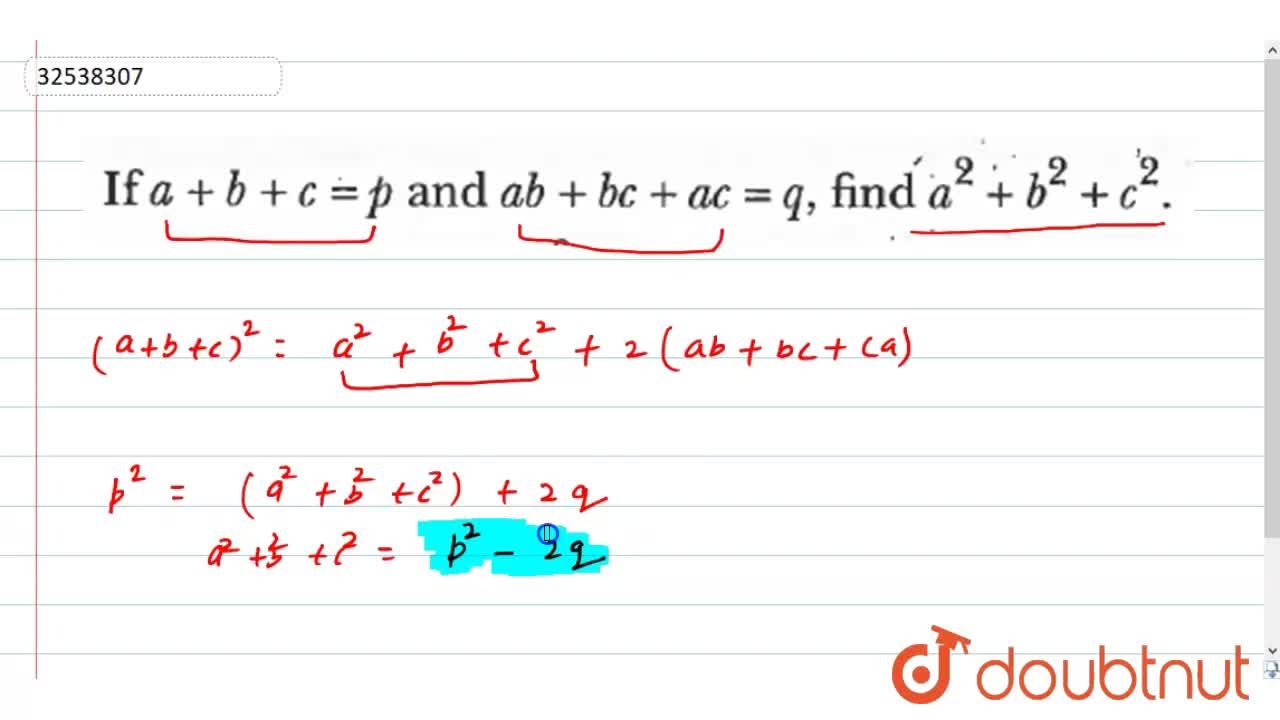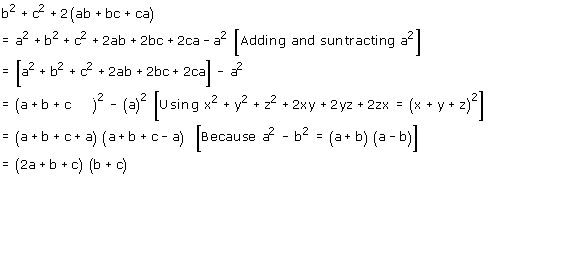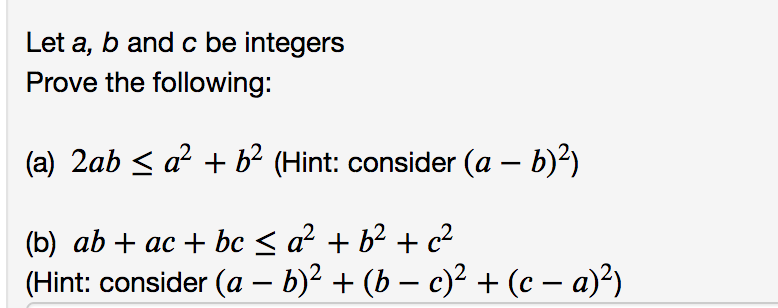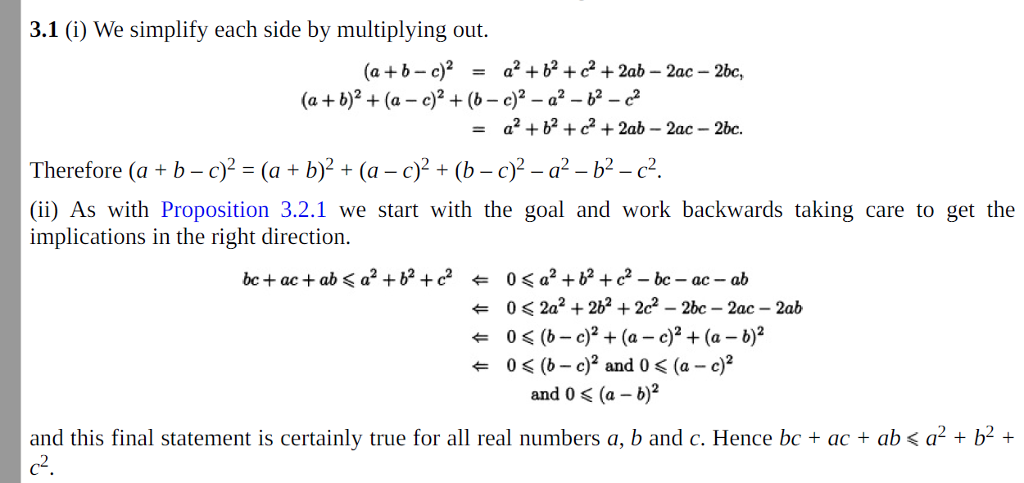
radicals - Use the Cauchy-Schwarz Inequality to prove that $a^2+b^2+c^2 \ge ab+ac+bc $ for all positive $a,b,c$. - Mathematics Stack Exchange

matrices - Prove that the determinant is $(a-b)(b-c)(c-a)(a^2 + b^2 + c^2 )$ - Mathematics Stack Exchange

i) If a^(2)+b^(2)+c^(2)=20 " and" a+b+c=0, " find " ab+bc+ac. (ii) If a^(2)+ b^(2)+c^(2)=250 " and" ab+bc+ca=3, " find" a+b+c. (iii) If a+b+c=11 and ab+ bc+ca=25, then find the value of a^(3)+b^(3)+c^(3)-3 abc.
Using properties of determinants, show the following: |((b+c)^2,ab,ca),(ab,( a+c)^2,bc),(ac,bc,(a+b)^2)|=2abc(a+b+c)^3 - Sarthaks eConnect | Largest Online Education Community
Prove the following identities –|(-bc,b^2+bc,c^2+bc)(a^2+ac,-ac,c^2+ac)(a^2+ ab,b^2+ab,-ab)| = (ab + bc + ca)^3 - Sarthaks eConnect | Largest Online Education Community

Simplify: `(a^2 - (b-c)^2)/((a+c)^2 - b^2) + (b^2 - (a-c)^2)/((a+b)^2 - c^2) + (c^2 - (a-b)^2)... - YouTube
.png)












